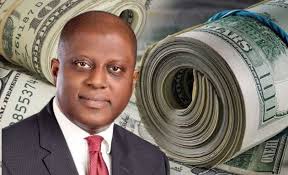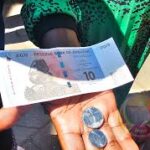The Central Bank of Nigeria (CBN) has raised its benchmark interest rate to 27.25%, marking the fifth consecutive increase in recent times. This move is part of the CBN’s ongoing efforts to tame inflation, stabilize the naira, and attract foreign investment.
However, while these intentions are commendable, the ripple effects of this interest rate hike on businesses, households, and the broader economy are multifaceted. In this article, we explore four major economic implications of Nigeria’s latest interest rate hike.
Taming Inflation: A Double-Edged Sword
The CBN’s primary rationale for raising interest rates is to combat inflation, which, despite recent declines, remains a significant challenge for Nigeria. By increasing the monetary policy rate (MPR), the CBN aims to reduce the money supply and curb excessive spending, which in turn should help to slow down inflation.
The Nigerian National Bureau of Statistics reported a drop in headline inflation to 32.15% in August 2024 from the previous month’s 33.40%. However, many analysts argue that this modest decline is driven more by seasonal food supply factors than the effectiveness of monetary tightening. Marvelous Ige, a financial analyst, points out that inflation is often a result of “too much money chasing too few goods.” The high-interest-rate environment, therefore, seeks to reduce money in circulation and restore purchasing power.
- Advertisement -
Business Contraction and Job Losses
While raising interest rates may help in controlling inflation, it also discourages borrowing, which could slow down economic growth, particularly for small and medium-sized enterprises (SMEs). Nigeria’s SMEs, which make up 96% of its businesses and provide 80% of the nation’s employment, are highly sensitive to the cost of credit. With the latest interest rate hike, borrowing becomes more expensive, making business expansion difficult and reducing overall economic activity.
Samson G Simon, chief economist at ARKK Economics and Data Limited, explains that “higher interest rates increase the cost of borrowing, discouraging business investments and expansion.” As businesses scale back due to higher financing costs, job creation slows, and unemployment rates rise. Given that small businesses contribute close to 50% of Nigeria’s GDP, this contraction could significantly hamper economic growth.
Attracting Foreign Investment and Stabilizing the Naira
On a more positive note, the higher interest rate environment may attract foreign investors looking for better returns. With the global financial landscape favoring lower interest rates, Nigeria’s high yields on investments could become more attractive to international investors. This influx of foreign capital is expected to increase dollar liquidity and stabilize the naira, which has been under significant pressure.
The naira has suffered a 70% devaluation since June 2024, but the CBN’s hope is that the higher MPR will help attract foreign exchange inflows, which can stabilize the currency. Financial analyst Adesile remarks, “The continuous hike in MPR should increase FX inflows from foreign investments and improve the value of the naira or at least stabilize it.” However, he cautions that this strategy may also increase cases of non-performing loans, as borrowers struggle to meet higher repayment obligations.
Impact on Savings and Fixed-Income Investments
The high-interest-rate environment is not entirely negative. For individuals with savings or fixed-income investments, higher interest rates mean better returns. Those with excess funds in savings accounts, fixed deposits, or bonds stand to benefit from the increased interest income. This incentivises saving over spending, which can help mitigate inflationary pressures by reducing consumption.
- Advertisement -
Financial experts like Adesile argue that “a high-interest-rate environment means higher returns for individuals with excess funds.” For investors, fixed-income securities like bonds become more appealing, offering a safer way to grow their wealth during economic uncertainty. While the broader economy may feel the strain of the interest rate hikes, savers and investors can take advantage of the higher returns offered by banks and other financial institutions.










